
The Foster boy (Der Verdingbub – its original title) is an excellent Swiss drama film made in 2011, so real that my mind is trying to block all the feelings I had while I was watching it. It is hard to think about it, it is difficult to rationalize „the story“ because its main theme is only a surface to scratch. It is based on real events through the fictional characters, but they are imaginary only because they didn't exist by the name that was given to them; everything else is insanely authentic in its complexity and nature.
This is a movie that depicts influence of specific circumstances in shaping peoples’ personalities. Through the story about orphans and their life in the foster homes, being used as cheap labor, not being treated as equal human beings, we get to see how specific cruel events get to shape their lives and the director wants us to pay attention to one more dimension which is related to people who mistreated those children. We realize that during the whole movie we attempt to understand what causes those unfortunate events happen in the first place and while trying to comprehend what is going on we can’t help but wonder about the main provoking underlying reason for such an inhumane behavior.
When it comes to real events, I must admit I had no idea something like this even existed. It happened in the rural parts of Switzerland between the 1920s and 1970s. The orphaned children or the children that couldn’t be supported financially by their families were given to foster families that received small amount of money per month from the government for taking care of those children. Those families were poor peasant families making their living on the farms where hard work had to be done in order to survive in harsh conditions and their existence was dependent on the help those children provided.
From the both rational and emotional perspective, there is nothing wrong with this whole idea: children with no families get to have a family, someone to take care of them, giving them protection and love they otherwise wouldn’t have, and the children become productive members of the household helping its functionality and survival.
What really happened is the theme of this movie and it begins with a dead child carried away from the farm. When a new boy from the orphanage arrives at the farm, the female authority figure (the Mother) is being told by the priest who was responsible for the children well-being: ”But you make sure that he lasts longer”. Then the Mother asks for a female child giving the priest a basket full of food. When we pay attention to those words and this particular action, we know that something is wrong, and we know that the priest is aware of that fact. Quite disturbing.
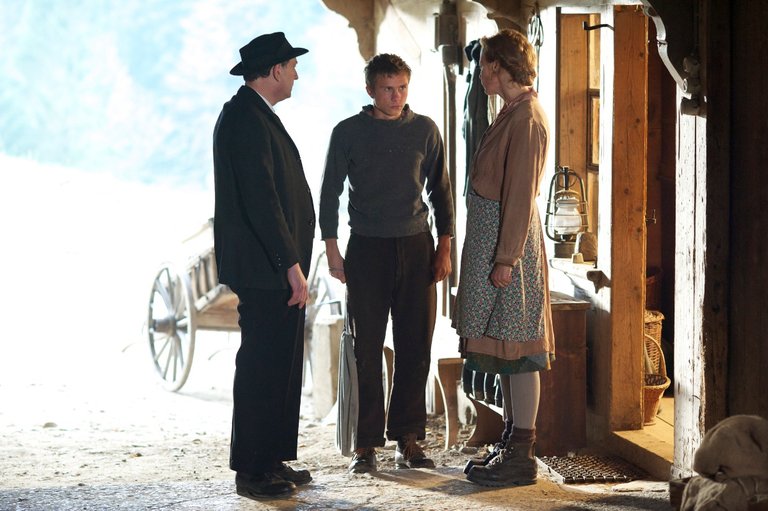
The boy is called Max and the girl Berteli. Max was brought from the orphanage and Berteli was taken violently from her widowed mother because as a widow, by the law, her mother was not seen as a person capable of supporting her children financially until she finds a man she can marry and support her and her children.

But, who is the most dominant figure and the head of this family? Obviously, the Father, just like in any family in the past. The hard work on the farm is his responsibility. He puts the food on the table and decides who will get it.
There is one more male figure in this family important for us to understand how this family really functions. It is the Son.
As far as I’m concerned, there is no main character in this movie, just like in real life. This story doesn’t depict what happened to those children only, but equally important part is the psychology of the figures of authority these children were dependent on.
Max is a boy disappointed with “false promises” his mother gave him, that everything was going to be alright, and then she died (that’s the way he, as a child, not being able to face the harsh reality rationalized his emotions). His dominant reaction was anger coming from great sadness he relieved only through playing his accordion which is the only thing he had left from his mother. He got into this family with a belief that nothing good could happen based on his experience in the orphanage and in the beginning he wasn’t even able to recognize kindness coming from Berteli, but he was able to give it to his pet rabbit he saved from certain death. Later on, with the goodness and affection coming from Berteli, a girl he could identify with, and with support of his teacher, he let himself feel and it gave him hope of happier life waiting for him. After hearing Tango, for the first time played on an accordion, at his teacher’s place, he was curious about it and his teacher told him about Argentina and he realized that through the music as his salvation, he could endure all the physical torture and emotional pain brought upon him by his imposed “Mother, Father and their Son”.
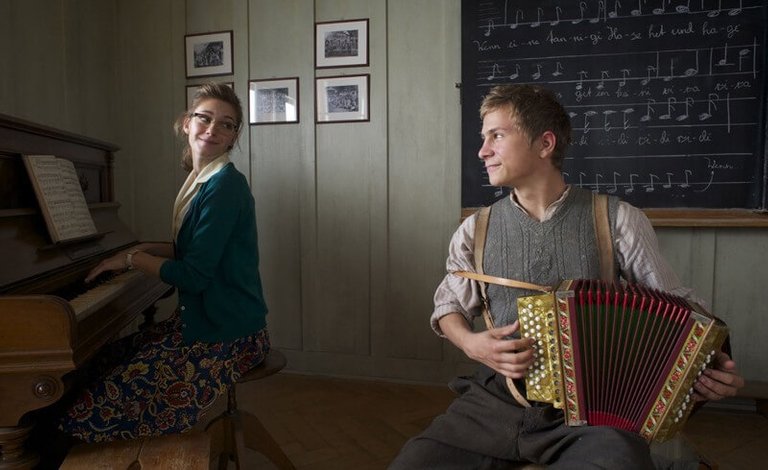
Berteli, unlike Max, is a girl who knew what real family looked like and how it felt to be loved and nurtured. She considered her staying in this family as something temporary because there was an undeniable chance of returning to her mother. She was strong, brave and obedient and after a horrible trauma she experienced she gave up for a moment. But however devastating she felt, she put other people needs on the first place and went forward with the same courage.
Now, let’s step into the total darkness of this movie. Through the boy and girl’s character we just got the hint of the disturbed and dysfunctional dynamics of this family. When seen out in the public, one cannot differentiate them from a normal, loving, caring family. But, what went on under the surface?
There is one word that can describe it very well – sadism. The word itself sounds appalling and extreme but easily believable when it comes to that popular phrase “Oh, well, this is just a movie”. We take it for granted and feel disgusted. We tend to see things black or white, people as good or evil. But, is it really that way in real life?
For me, this is the most important question and since the director gave us such a phenomenal insight into the lives and actions of the family members, I cannot but notice he wanted us to think about that.
The father has the responsibility of being the provider for his family. He works hard, he does what he has to do and gets little or no results feeling alone in this struggle for survival while his wife blames him for the conditions they are living in, saying he is incapable and alcoholic; all the wrongdoings are his fault. He thinks he’s alone, his son incapable of doing anything to make things better and help him while the son‘s greatest wish is to get recognition and validation from his father. There is no intimacy or anything similar to close relationship including any expression of warmth, love and kindness with his wife and son. The sexual intimacy with his wife is nothing more than mechanical satisfaction of his sexual needs.The only thing that makes this act as if human beings were participating is the mutual consent just because she feels obliged to fulfill her duty. She is free from doubt that she sacrifices her life for her family and does whatever is necessary and expected from her to do in order to fulfill her role. She calls her husband “a pig” behind his back and declares that he would never change. From his perspective, his wife and son are not his family, they are his torturers and enemies he has to live with. There is no light in his eyes, he appears apathetic and hopeless. From her perspective, she is the only person keeping this family together, operating on strictly rational level having no right to feel as a woman but as a person responsible for enabling the family’s functionality. In general, they see themselves as good and righteous people doing the best way they can what they have to do in order to survive and this is the point where the orphaned children come as a partial solution to their problems, providing them with small amount of money and hard physical work.
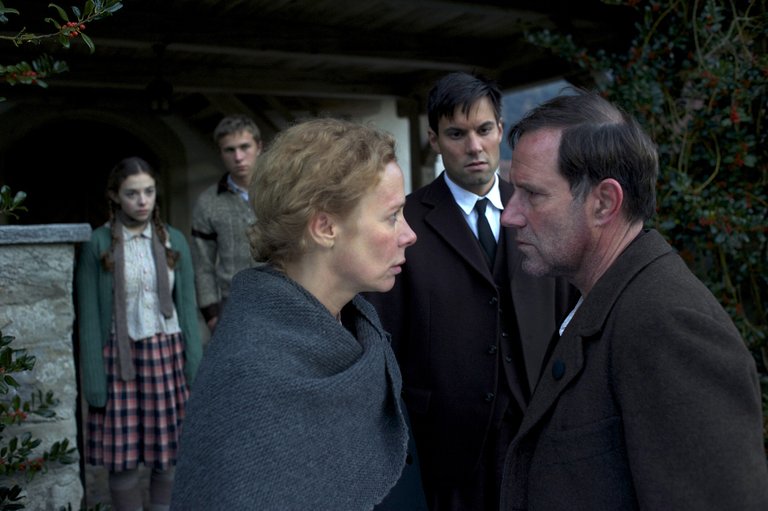
We realize the motive that keeps them together is sole purpose of physical survival. But, what hides behind that purpose, how are they able to cope among themselves and with themselves under such circumstances? Is it possible to live like that and function as a human being?
Well, it’s not. They must dehumanize themselves and those around them. The only expressed emotion in its full transparency and the action they find mutual is cruelty. They are being cruel towards each other and the children they should take care of. They punish each other by being verbally abusive, but they exercise their dominance over the children using both verbal and physical abuse.
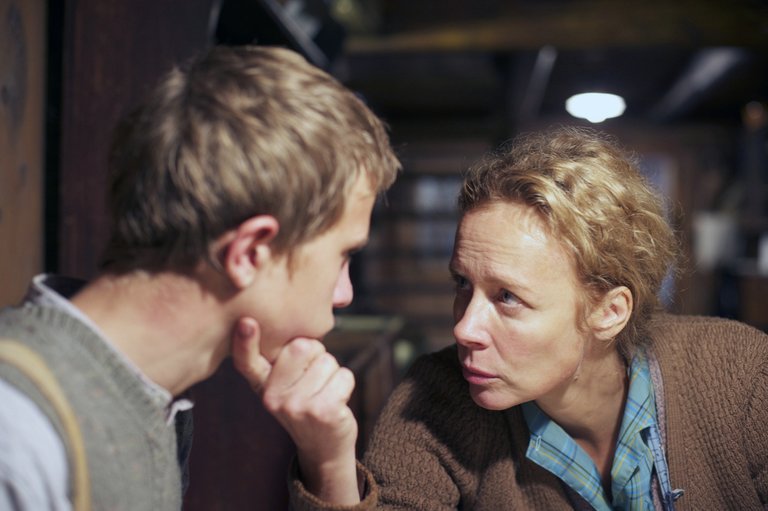
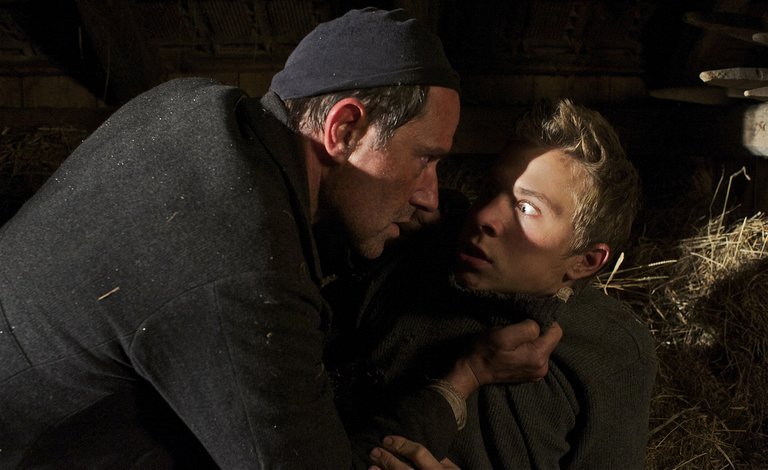
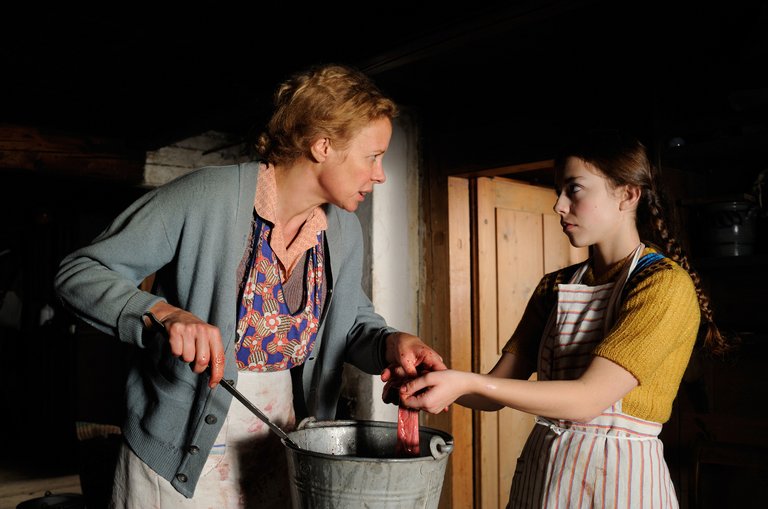
The Father intentionally undermines and invalidates everything his son does causing him to feel inadequate. He doesn’t show any support but belittling and constant criticism of his actions in a very harsh and brutal way. Nothing is good enough and when the Son talks about some success he achieved, father calls him a liar. On the other side, the Son does the exact same thing to other people he interacts with and it seems that he not only mimics his father’s behavior, but sincerely enjoys in other peoples’ pain. The way Father behaves towards his Son is the same way the Mother behaves towards her husband. And we have the full circle of misery. But, what makes this whole unhappy story even worse is that those two children unwillingly became part of their dysfunctional behavior. They are perfect targets for every one of them. They become the suitable objects for releasing any suppressed anger by the members of the family just because they cannot defend themselves.
I want to get back to the first passage of this post, saying this movie is painfully real. How many times people hurt you in some way or another and you know you did nothing wrong to deserve such treatment? Sometimes you come to the conclusion they are just bad, evil persons, sometimes you rationalize that it’s your fault after all, sometimes you just get confused and feel hurt. It depends on who is the person who caused hurt to you and to what extent you are emotionally attached to that person. The more attached you are, the answer to the motive of such a deed becomes more difficult to comprehend and you build self-defense mechanisms in order to cope with such horrible feelings. But, in case like this, when people cannot cope or deal with feelings related to serious traumas, their self-defense mechanism can turn into pathological way of expressing their pain. They try to relieve their pain by giving it to others. They feel tortured so they torture others. They feel their life is out of their control, so they seek control through domination imposed upon those who are dependent upon them. It is domination through abuse and intimidation, they see it as regained sense of control over their lives.
To explain in simple words, they shared their immense pain they carried inside, they gave what they had and passed further what they were given. It is the utter feeling of desperation and unhappiness and since they don’t feel as complete human beings and thus being deprived of the whole spectrum of human feelings, all other people are objects to them and deserve nothing but pain, just like themselves.
The director Markus Imboden, writers Plinio Bachmann and Jasmine Hoch with phenomenal actors Katja Riemann, Stefan Kurt, Maximilian Simonischek, Max Hubacher, Lisa Brand and Miriam Stein (and the others, of course) did such a great job and made this movie so exceptional. I recommend it from the bottom of my heart. I intentionally didn’t want to write about specific events that happened in the movie and about characters’ final destiny; I would like you to watch the movie and discover it yourself.
Here is the IMDB link: https://www.imdb.com/title/tt2057931/
Movie trailer: